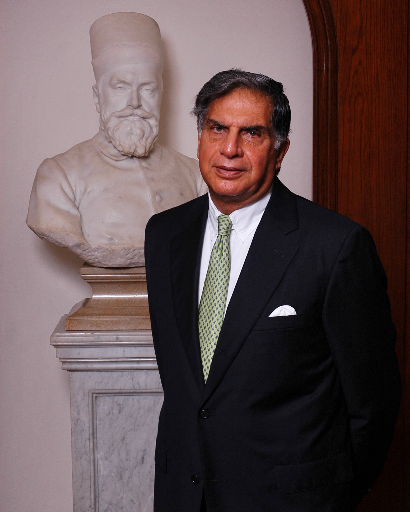
- Under Ratan Tata’s leadership, the Tata Group embraced innovation in sectors like technology, healthcare, and automobiles.
- Under his leadership, the company’s growth and international expansion accelerated, resulting in several major acquisitions such as Tetley, Corus, Jaguar and many others.
- The economic rise of Tata has also served as a soft diplomatic tool, largely due to Ratan Tata’s highly respected and influential image worldwide.
Businessman and philanthropist Ratan Tata passed away this Wednesday due to health complications. Ratan Tata was the Chairman Emeritus of Tata Sons and was well-known for his contributions to education, healthcare, technology, and philanthropy.
Ratan Tata took over as Chairman of Tata Sons in 1991 from his mentor and uncle, J.R.D. Tata. His leadership came at a crucial time, as India was undergoing significant economic transitions with the introduction of the LPG (Liberalization, Privatization, and Globalization) reforms. This period marked the opening of the Indian economy to foreign competition, which presented both opportunities and challenges for Indian companies.
There was initial concern about whether Indian companies, which were not as competitive as their foreign counterparts, would survive in this new economic landscape. Many feared that foreign companies would dominate the Indian market, sidelining domestic businesses. However, under Ratan Tata’s leadership, Tata Group embraced innovation in sectors like technology, healthcare, and automobiles. This not only helped the company thrive but also positioned Indian companies to benefit from the reforms.
Ratan Tata’s visionary leadership proved that the LPG reforms could be a positive turning point for Indian businesses, rather than the threat many had anticipated. Through continuous innovations, Tata Group emerged victorious, showcasing that Indian companies could successfully compete on the global stage.
Ratan Tata is recognized for transforming the Tata Group from a primarily India-focused company into a global enterprise. Under his leadership, the company’s growth and international expansion accelerated, resulting in several major acquisitions. Notable deals included Tetley for $431.3 million, Corus for $11.3 billion, Jaguar Land Rover for $2.3 billion, as well as Brunner Mond, General Chemical Industrial Products, and Daewoo for $102 million.
For any economy to prosper, its key sectors must thrive. One of the major challenges facing the Indian economy is its heavy dependence on the primary sector. This over-reliance has hindered India’s transition to the secondary and tertiary sectors. The primary sector itself is limited, with a large number of people involved but producing relatively low output. Economists estimate that around 60% of India’s population is engaged in the primary sector, which includes agriculture and animal husbandry, yet this sector contributes only about 18% to the country’s GDP.
The secondary sector in India, full of untapped opportunities, has gained more attention recently under Prime Minister Modi’s administration, with the government focusing on developing both secondary and tertiary sectors. India’s tertiary sector, particularly the services industry, has been highly profitable in recent times. A key player in this growth has been Tata Consultancy Services (TCS), which laid the foundation for the country’s service sector. Today, TCS has assets worth nearly ₹1.5 trillion and plays a critical role in providing global employment, showcasing the strength of India’s service sector.
In the secondary sector, Tata Motors has made significant contributions, with a major turning point in the Indian automobile industry being the launch of the country’s first indigenous passenger car, the Tata Indica, in 2008. Shortly after, in 2010, Tata Motors introduced the Tata Nano, priced at just ₹1 lakh, with the vision of making cars affordable for the average Indian. These milestones helped build the foundation for India’s secondary and tertiary sectors. TCS and Tata Motors are widely regarded as pillars of these sectors, contributing significantly to the Indian economy’s growth.
India has become a major hub for medical tourism, which has become a significant source of revenue for the country. This is largely due to the availability of affordable and high-quality medical facilities and services, attracting people from around the world. The philanthropic work and healthcare infrastructure supported by organisations like Tata are key contributors to this development. For example, Tata’s cancer treatment facilities, including major centres in Kolkata and other metropolitan cities, have played a crucial role in advancing India’s medical tourism sector. These efforts have given a strong push to India’s aspirations in the field of medical tourism.
The economic rise of Tata has also served as a soft diplomatic tool, largely due to Ratan Tata’s highly respected and influential image worldwide. His reputation brought a sense of respect not only to Tata but also to India. In this way, Tata’s success acted as a form of soft diplomacy, enhancing India’s global standing.
Reference:
Aayush Pal is a freelance writer on contemporary geopolitical developments. The views expressed in his work are entirely his own.
